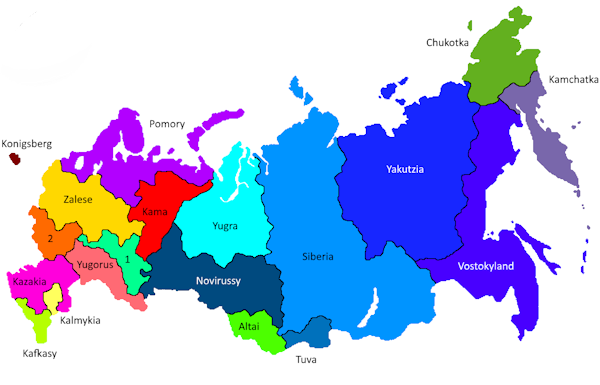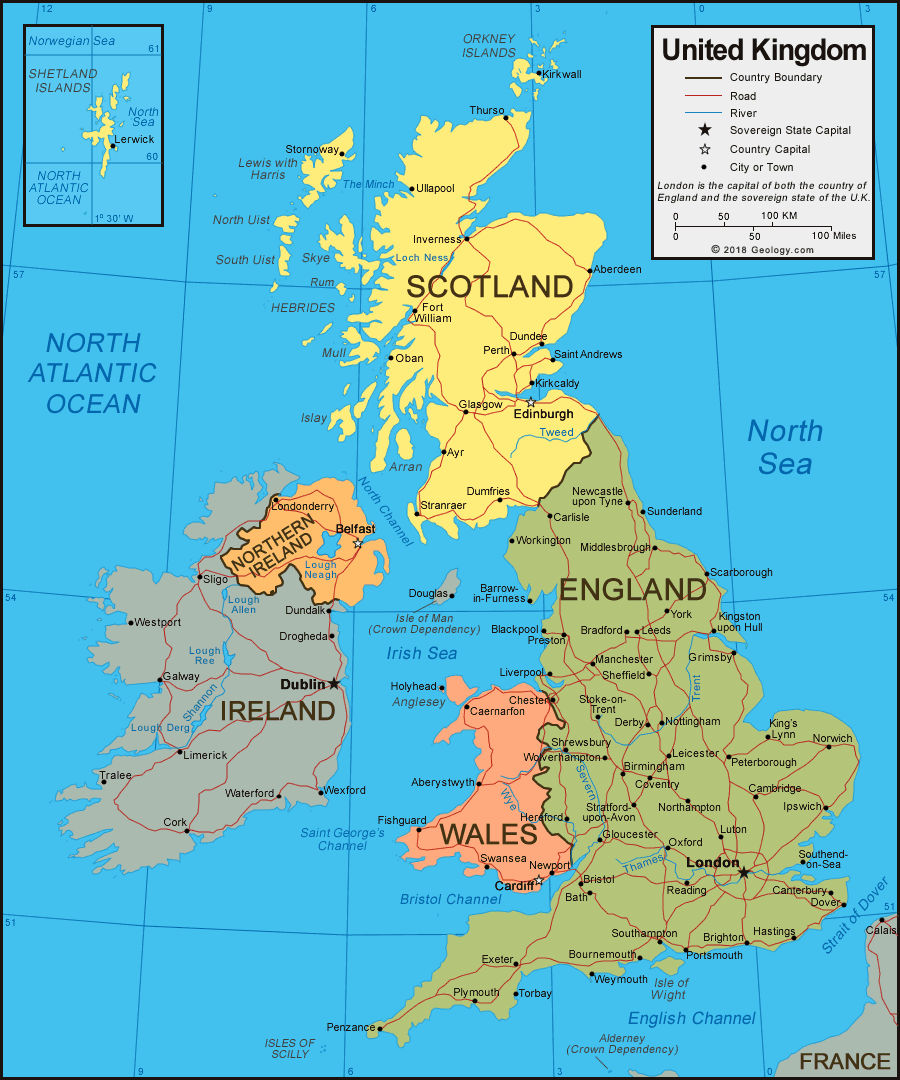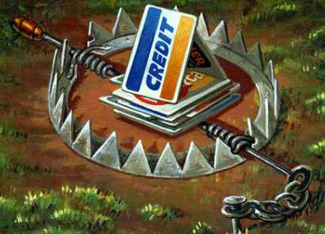|
|
|||||||||||||||||||||||||||||||
PoliticsWhether you are highly political, not political, a voter or non voter we are all* effected by politics. * Unless you are living in a cave somewhere. Thus it makes perfect sense that people should be both concerned about politics - and try to keep well informed about politics. I find it deplorable the number of people out there who are sadly misinformed on so many political topics. Like Americans who support Israel's military aggression, but don't know where Israel is on a map. That is a sad state of education with respect to both geography and politics that Americans don't know where Israel is. (Sadly most Americans also don't know what the capital of Texas is (Austin, most Americans think it is Dallas or Houston), the name of the 3rd President of the United States when asked (the answer is Thomas Jefferson) or even who the current governor of California is (Jerry Brown, most Americans still think Arnold is still the "governator"). As such Lilith Press makes an effort to both educate people and to comment on what we feel is political injustices.
Sincerely,
New Articles
Old Articles
48 Emails from "Harris for President" and I Can't Vote!By Suzanne MacNevin If you've ever received an email from a political campaign that made you think: "Wait, how did I end up on this list?" Well, you're not alone. As a feminist writer with dual British-Canadian citizenship, I've somehow ended up on the receiving end of 48 (yes, I've counted) emails from the Kamala Harris for President campaign. The kicker? I can't vote in the U.S. elections! You'd think they'd know this, what with me politely unsubscribing several times and shouting: "I'm not even eligible to vote!" to my laptop screen. But alas, the emails keep rolling in. Each one arrives with the same urgency, and always asking for more money, making me wonder if they believe I've somehow been given a magic power to cast ballots from the mystical land of "not quite American enough." Or maybe they think non-Americans should be funding an American's presidential bid? Sadly, I have no such powers. And my money is staying in my bank account. The truth is, I was born in Canada and I've lived in the UK for quite some time now. I have never, ever, even desired to live in the USA. And while I still enjoy a good cheeseburger and want Kamala Harris to win (and Donald Trump to lose), my political ties to the U.S.A. remain as loose as a politician's promise after the election. However, this hasn't stopped the campaign bots from bombarding me with pleas for donations, calls to action, and a constant reminder of how Kamala Harris is "fighting for the soul of America." (If only they knew I'm more concerned about fighting for the soul of my inbox.) Despite this digital barrage, I've come to appreciate the humor in it all. There's something oddly comforting about imagining some campaign strategist looking at a spreadsheet and thinking, You know who we need? A feminist like Suzanne MacNevin! She can't vote in the American election, but she can read emails! At least they have persistence, I'll give them that. Maybe next time they'll be asking me to run for president instead. Now that would be an inbox worth opening!
Russian Fragmentation: Rejuvenating Politics for a Dynamic Future
By Chaz G. T. Patto - June 2023. The concept of Russian fragmentation, the division of the country into smaller independent states, carries the potential to rejuvenate politics within Russia. By decentralizing power and fostering diverse political landscapes, fragmentation could lead to a more vibrant and dynamic political system. In this essay, we explore the potential political benefits of Russian fragmentation, emphasizing the potential for increased civic engagement, regional autonomy, and innovative governance models. Empowering Regional Autonomy Russian fragmentation would allow regions to exercise greater autonomy over their local affairs. Smaller, independent countries could tailor policies and governance structures to address the unique needs and aspirations of their populations. Regional leaders would have the opportunity to be more directly accountable to their constituents, fostering a sense of ownership and participation in the political process. Fostering Diverse Political Landscapes Fragmentation would foster diverse political landscapes across the newly formed countries. This diversity could stimulate the emergence of a multiparty system, encouraging a broader range of political ideologies and platforms. The proliferation of political parties would offer voters a wider choice, ensuring that the political discourse reflects a broader spectrum of views and promoting healthy competition. Enhancing Civic Engagement Fragmentation could invigorate civic engagement by encouraging greater political participation at the regional level. Smaller countries would provide more accessible platforms for citizens to engage with their elected representatives, fostering a sense of proximity and accountability. This enhanced civic engagement would strengthen the democratic fabric of each region, as well as overall political culture. Experimenting with Governance Models Fragmentation would create an environment conducive to experimentation with innovative governance models. Each newly formed country could develop its own governance structures, electoral systems, and policy frameworks, allowing for a laboratory of political ideas and practices. This experimentation would provide valuable lessons and insights that could be shared and adapted to improve governance across the entire region. Addressing Regional Disparities Russia's vast territory has long been plagued by regional disparities. Fragmentation could help address these disparities by empowering regions to focus on their specific needs. Smaller countries would have more focused governance strategies, enabling targeted regional development initiatives, infrastructure investments, and tailored economic policies. Reducing regional disparities would enhance social cohesion and stability, creating a more equitable and harmonious political landscape. Renewed National Dialogue Fragmentation would necessitate a renewed national dialogue, promoting open discussions on the future direction of each independent country and the overall region. This dialogue would foster a sense of shared purpose and collective identity among the newly formed countries, promoting collaboration, cooperation, and the exchange of ideas. It would enable the development of common goals and shared values, essential for a cohesive and prosperous regional community. Russian fragmentation has the potential to rejuvenate politics within the country, offering a range of political benefits that could invigorate governance, empower regional autonomy, and enhance civic engagement. By embracing the diversity and unique characteristics of each region, fragmentation could usher in a more dynamic political landscape, fostering experimentation, innovation, and effective governance models. However, it is crucial to approach the concept of fragmentation with careful consideration, acknowledging the challenges and complexities it may entail. The hypothetical scenario of Russian fragmentation should be examined through comprehensive analysis and open dialogue to fully grasp its potential implications and opportunities. See Also:
Do you support Britain Rejoining the EU? BREJOIN!
By Suzanne MacNevin - March 2021. This is not a poll. There is no need for a poll. Many people consider it to be inevitable that Britain will eventually rejoin the European Union, it is just a matter of time. Ten to fifteen years from now, 2031 to 2036 roughly. There are pretty good odds that the UK will have rejoined the EU before 2036, and the EU will likely insist on the UK trading in the British Pound for the Euro. As a British citizen and a Scot I was wholly opposed to Brexit, just like I was opposed to Scotland leaving the UK. But now that Brexit is officially done my opinion on Scotland independence has shifted. I now support Scotland leaving the UK and rejoining the EU. Similarly Northern Ireland has also speculated about leaving the UK, rejoining the EU, and possibly reunification with Ireland. Lastly Wales. If Wales also left the UK and rejoined the EU, there really wouldn't be an "United Kingdom" any more. It would just be England who would be the sole part of the English Isles who is all alone and refusing to join the EU. Coupled with the fact that many industries have been decimated by Brexit (especially fishing) and I predict that the 10-15 year timeline some people are predicting could happen sooner. Some people will no doubt try to blame COVID-19 for Britain's looming economic recession, but I think the lasting blame will fall on Brexit and how it is hurting many of Britain's industries that were booming even during COVID-19. Eg. Fishing was doing just fine under COVID restrictions because most fishermen fish alone, it was Brexit that killed the demand for fish being caught in England. People just stopped ordering fish caught in the UK and there was no more need for it. Britain's fishing industry just became too expensive overnight and orders dropped off to 1% of what they used to be.
THE BREJOIN MOVEMENTRejoining the EU is really just a matter of time in my opinion. The leave vote was 51.89% (17,410,742 votes). Remain 48.11% (16,141,241)... But of the total number of registered voters only 72.21% of people bothered to vote. Another 13 million registered voters didn't even show up to vote, and 25,359 voters ruined their ballots or deliberately left it blank (possibly because they didn't know which way to vote). So what you have there is 27.79% of British voters who didn't show up to vote and are likely now regretting that decision. So in reality when you include all registered voters...
So Britain only left the EU because 37.44% of registered voters decided they wanted to leave. Everyone else either voted to remain, didn't vote, or left it blank/etc. Plus what about voters who have since changed their minds about Brexit? The voters who voted for a lie, convinced that Brexit would somehow lead to more money for the NHS? It hasn't happened. The voters who thought Brexit would create more jobs? It hasn't happened. The voters who thought that Britain would stop letting in immigrants as Britain becomes more multicultural? Ha! Too late for that loser. Britain is already multicultural and another 15 years from now Britain will be as multicultural as Canada currently is. Being a xenophobe isn't going to change the fact that Britain is changing. It is too late to try and stop immigration. The British Isles historically has been populated and repopulated by waves of migrants dating back to the Normans, the Vikings, the Anglo-Saxons, and beyond. And let's face it. A good chunk of the people voting to Leave were really thinking in racist terms with respect to England controlling immigration more, and what they expected to happen didn't actually happen. Britain is becoming more multicultural by the day, not less. So what they voted for was an illusion of Britain being for white people, when in reality the future of Britain will be a cultural mosaic even if the UK opposes rejoining the EU. But rejoining (or Brejoining) is just a matter of time in my opinion. As I said above this is not a poll. The percentage of Brits already in favour of Brejoining has shifted back in the opposite direction. If a Brejoin vote was held today there would be pretty good odds that the UK would be back in ASAP. Just a matter of time.
The Enslavement of the American PeopleDebt & Slavery in Modern America
March 30th 2011. In ancient times if people had too much debt, they were dragged before the barbaric courts of the time and if they could not pay their debts they were sold into slavery. In modern America, much the same thing is happening but Americans have had the wool pulled over their eyes so they cannot see how they've been enslaved by a corrupt system. The Recession of 2007 - 2009 was brought on by greedy bankers seeking bigger and bigger bonuses for the buying and selling of debt. The more debt you sold to investors, the bigger your bonuses were. This system was doomed to fail. In a nutshell here is what happened: #1. During the Reagan administration the government began deregulating the financial markets, allowing banks to make riskier investments. #2. These bankers then went out and gave mortgages to people who couldn't afford them, but at a higher interest rate because this was "in theory" more profitable for the bank. #3. The bankers then sold the mortgage debts to investors through "derivatives" and classified them as "AAA", meaning they were just as safe as government bonds, even though they were risky mortgages. #4. Because bankers were now giving mortgages to anyone who asked for one it meant many Americans started bidding on homes with money they didn't actually have. Over the short term this caused a spike in housing prices. #5. Then during the Bush administration more deregulation led to a massive explosion in Futures trading. Futures is where you basically bet on whether a stock will go up or down, essentially turning the financial markets into a gambling casino where investors and banks could even bet against companies and whole industries, including the real estate market. #6. The bankers knew their mortgages were risky but in order to maintain the status quo they borrowed more money against themselves in what is known as "leverage". Prior to the Bush administration there was a cap on how much they could borrow, but the bankers convinced the Bush administration to allow them to leverage many times their previous value with guarantees from the American government so that if anything went wrong the American government would pay for it. #7. Poor economic policies by the Bush Administration led to the American real estate market to collapse when people stopped paying their mortgages. Banks started foreclosing on homebuyers who couldn't pay, the housing market bubble burst. #8. Because all the American banks had sold their mortgages through derivatives, these "junk mortgages" suddenly became a hefty debt. The big investment banks began declaring bankruptcy and their debts, guaranteed by the American government, was passed on to the American people. And thus it was that the US government had little choice but to bailout the big investment banks in order to restabilize the system. In theory the US government should have then brought about more regulation to prevent this from happening again, but the Obama administration's regulatory bills have little or no teeth. Thus the financial collapse of the 2007-2009 period can and will happen again. During that period it wasn't just the housing market which was collapsing. People were also defaulting on car loans, credit cards, personal loans and other methods of credit. To try and fix the problem the American government borrowed trillions of dollars from China, money which will eventually have to be paid back through taxes. Stimulus packages by the American and Canadian governments have proved ineffective at getting the American people back to work. Unemployment in North America is still very high because of a lack of manufacturing (manufacturing is the backbone of a stable economy). The stimulus packages were aimed at short term building projects, which help the lumber, steel and concrete industries, but do nothing to help factory workers. In Canada the stimulus packages were even more corrupt because the Harper government spent the stimulus money in their own political ridings, giving money to their friends, instead of spending it in the hardest hit regions of the country. We can assume that in the USA how the stimulus money was allocated was probably equally plagued by corruption. In the wake of the financial crisis what boggles the mind is how we are back to the old system of mortgages, bankers, astronomical bonuses... But while this means great financial success to anyone with a MBA working in Wall Street, what it means for Americans is slavery.
DELAYING THE CREDIT APOCALYPSE
Americans now live in a society that NEEDS credit. In order to buy almost anything an American must either whip out their credit card, secure a car loan, or ask for a mortgage from the bank. Very few Americans actually use cash any more. When they are sent off to college or university the first thing Americans do is get a student loan, the 2nd thing they do is apply for a credit card or some kind of line of credit from their bank. These debts are then bought and sold as derivatives on the stock market by investment banks, who sell them to investors. The problem however is that when they cannot get enough investors they instead leverage their bank by borrowing money from the American government, who in turn acts as a guarantor should the investments go sour. The investment bankers then pay their employees huge bonuses (and continue to do so today) based on "projected profits", even if the debts they are selling are junk because they know the government has already guaranteed them anyway. This is commonly known as 'counting your chickens before they've hatched'. Thus if the average American, lets call them Sam, defaults on their student debt the banks don't actually suffer the burden of that debt. Indeed the investors don't get stuck with the debt either. The investment banks take all of their junk debts and stick them in one set of "assets" which they then sell to a rival bank who is setup to take the fall, which the government will ultimately end up paying for. But what happens when too many Sams default on all their loans? Well thanks to the system of leverage the banks can leverage anywhere from 30 to 50 times what they actually have in assets. That means if only 2 to 3% of people default on their loans, the bank will go bankrupt. Thus lets take for example VISA, Mastercard and American Express, the three biggest credit card companies in America. Where do they get the money from which they are giving to Americans? Its not coming from the banks, because the banks don't want to be holding the bag. They've sold that debt through derivatives, leveraged their assets and borrowed money from the American government. The question is how much have they leveraged and when will it finally collapse?
THE DEBT TSUNAMI
In a Ponzi scheme you need to keep finding more and more investors (suckers) to loan you money in order to keep your other investors happy. However there is a zenith point where eventually you run out of investors and the money all starts to disappear. The Ponzi schemer has spent too much of their money living high on the hog and often (for whatever reason) thinks they can try and fix it. Eventually people start pulling out their investments and the Ponzi schemer runs out of money. This is the case with America's debt, a debt which has crippled America's economy to the point that in the near foreseeable future we will encounter a debt tsunami. Its the zenith point where everything will collapse. Here's what will happen... the biggest debts will go first. We've already seen this with the collapse of the mortgage industry in 2007. Next people will start defaulting on their other debts, the ones they don't need as much or can't afford to pay. ie. If they need their car, they might choose to pay their car loan instead of paying their credit card. Or they might decide to renege on their car loan. Or both. Heck, many people might just decide to declare bankruptcy and start over again, going back to the old system of paying for everything with cash... The problem however is that the American people is not going to support bailing out car loans and credit card companies, even if the government is the guarantor on these debts thanks to the derivatives and securities markets. What will happen is a cascade effect. One section of the markets will drop suddenly, causing other markets to collapse. Then banks will declare bankruptcy, banks will be shut out so people cannot get their money, millions of Americans will lose all their savings which the banks have gambled away on the stock market and wasted on executive bonuses.
THE CURRENCY IMPLOSION
Which brings us to the problem with America's currency. The American dollar isn't based on anything. Its not tied to the value of any commodity, like gold or silver. Its just a piece of paper. If the US government takes on too much debt, and that debt cannot be borrowed from China or other countries, America's currency will become worthless. Indeed we would argue that it already is worthless and that Americans should act "while the getting is good" and try to buy everything they will need for when the Debt Tsunami finally hits. Judging from the reaction of many Americans during the 2007-2009 period they went and bought tents and camping gear. The irony is that in cities like Detroit there are thousands of homes sitting there empty and derelict because the local economy has collapsed. Detroit is now a Ghost City, its population is one third of what it was in 2006.
THE SOLUTION?The solution is probably going to be tough, brutal and Americans aren't going to enjoy it one bit. The American people have already become slaves to their debts and credit cards, debts they cannot afford. When people become desperate they will resort to crime to find food and a place to live. The US government will react by turning America into a police state (some would argue it already is). Anarchy, civil war, an uprise in communism... the worst is yet to come. Expect crime to rise dramatically, violence during elections, and tight security around politicians and influential bankers... and bankers continuing to be getting away with theft even as the economy plummets.
DisclaimerNow you might think we're not being realistic about this situation. Nope, we'd argue we're being pretty realistic about it. We are very confident a collapse is coming because our governments are corrupt and too greedy to make any serious changes. Our governments and banks have been wasting our money trying to patch together a broken system which is "too big to fail". Its already failed, we're just delaying the debt crisis by borrowing more and more. You also might think we want the system to fail. This isn't true. We WISH we were wrong. But the economics don't lie, greedy politicians and bankers do. The reality of the situation is eventually our economy will reach a tipping point where there isn't enough manufacturing to support a lazy service driven economy. The service jobs will dry up, America will be awash with ghost cities as migrant workers travel to find better jobs. Its already happening, but we've been blinded by greed and denialism that we don't want to face the cold hard truth:
America is Bankrupt.The average American has over $15,000 in credit card debt. This debt is expected to rise 33% by the end of 2011, to $20,000 each. Late payments and people reneging on debt are rising. Nationally Americans owe $4.665 trillion in credit card debt, a number expected to reach $6.22 trillion by the end of 2011. The average American owes over $29,000 in car loans. $9.019 trillion nationally. This number is expected to rise above $10 trillion by the end of 2011. Mortgage debt has more than doubled since 2000. Americans now owe $15.1 trillion in mortgage debt. This debt is expected to rise to $16 trillion by the end of 2011. The US National Debt is over $14.2 trillion as of March 2011. (America's 311 million people owe $45,659 each in future taxes.) The US National Debt continues to grow at a rate of $4.08 billion per day. The US National Debt will reach $15.3 trillion by the end of 2011. Bankruptcy filings have grown to 0.625% annually. 1.94 million Americans are expected to file for bankruptcy in 2011. Last year there was 1.87 million bankruptcies. So... in summation the average American currently owes over $138,000 USD each, a number which will rise to $153,000 each by the end of 2011. With bankruptcy filings that keep going up its no wonder America's economy is failing. Note: When finances are tight, 59% of people would pay their credit card bills last. 52% would pay the mortgage first and 38% say they would pay for utilities before paying other obligations. Only 10% say they would pay their credit card or other bills first. (Source: CreditCards.com survey, December 2008.) Go find other sources and do your own research. The statistics you find will scare you when you realize the United States is increasingly a bankrupt country and its only a matter of time before the "debt tsunami" brings about the destruction of America's plagued and dying financial system. It won't be terrorists that will bring America to its knees. It will be greedy bankers and its already happening.
|
|
||||||||||||||||||||||||||||||
|
Website Design + SEO by designSEO.ca ~ Owned + Edited by Suzanne MacNevin | |||||||||||||||||||||||||||||||





